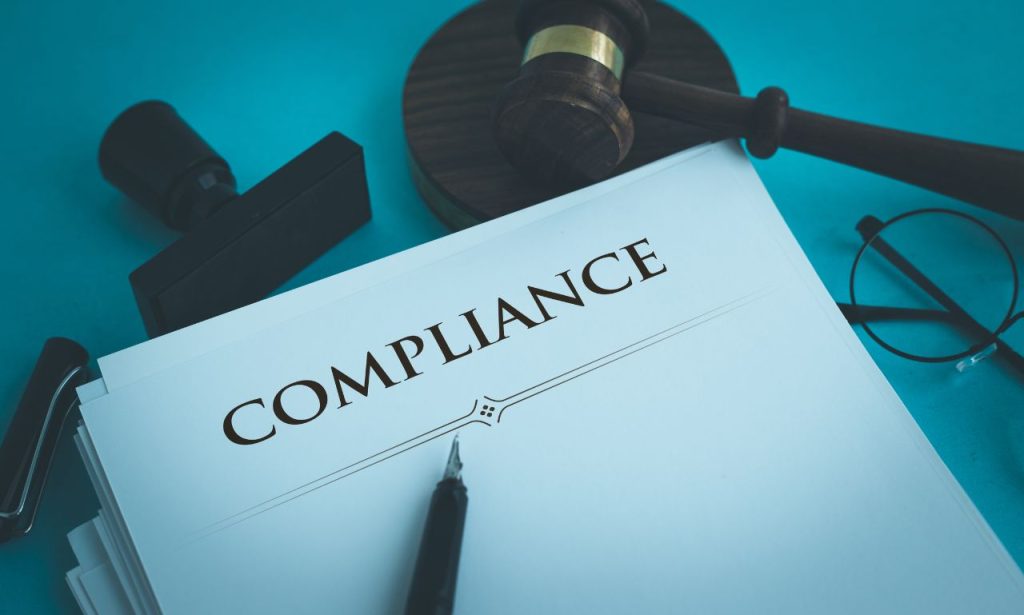In today’s dynamic business landscape, embracing a robust compliance program isn’t just a regulatory checkbox—it’s a strategic imperative. You’re navigating a world where ethical standards and legal requirements intertwine with operational success.
Key Elements of Corporate Compliance Programs
Risk Management
Identifying potential risks isn’t merely about avoiding fines or penalties. It’s about safeguarding your organization’s integrity and long-term viability. A strong compliance program proactively assesses vulnerabilities across all operations. You anticipate challenges before they escalate, ensuring that every aspect of your business aligns with industry regulations and ethical norms.
Employee Training

Your employees are the frontline defenders of compliance. By investing in comprehensive training programs, you empower them with the knowledge to uphold ethical standards and comply with legal obligations. Interactive sessions, real-life scenario discussions, and regular updates transform compliance from a tedious task into an integral part of your corporate culture.
Systematic Monitoring
Implementing regular audits and monitoring mechanisms keeps your compliance program effective and responsive. By continuously reviewing processes and addressing potential issues, you maintain a culture of accountability. You utilize internal monitoring tools to track compliance obligations, ensuring that corrective actions are swift and effective whenever discrepancies arise.
Benefits of Corporate Compliance Programs

Corporate compliance programs are essential for navigating today’s complex regulatory landscape. Here’s how a robust compliance program benefits your organization:
Protecting Organizational Reputation:
- Enhances public perception and builds trust with stakeholders.
- Demonstrates reliability and integrity, attracting and retaining customers.
- Differentiates you from competitors, showcasing your commitment to ethical practices.
- Cultivates stronger, long-term business relationships built on trust.
Safeguarding Patient Safety (For relevant industries):
- Ensures adherence to strict regulations and best practices in patient care.
- Prioritizes patient well-being and minimizes risks associated with non-compliance.
- Reinforces your organization’s dedication to providing safe, high-quality services.
- Protects against legal repercussions and strengthens public trust.
Ensuring Data Integrity:
- Safeguards sensitive data through strict protocols for handling and protection.
- Mitigates risks associated with data breaches and misuse.
- Ensures compliance with data privacy regulations like GDPR.
- Builds trust with clients and partners who value data security.
Promoting Operational Efficiency:
- Streamlines processes by eliminating redundancies and clarifying procedures.
- Establishes clear guidelines and standards of conduct, reducing confusion.
- Enhances productivity by empowering employees with clear expectations.
- Contributes to overall business success through optimized operations.
A strong compliance program is an investment in your organization’s future. It’s a proactive approach to risk management, a testament to your ethical values, and a driver of sustainable growth. By prioritizing compliance, you are not just avoiding penalties—you are building a stronger, more resilient, and more trustworthy business.
Regulatory Compliance Landscape
The regulatory environment is complex and ever-changing. Organizations must stay informed and vigilant to avoid costly penalties and reputational damage. Here’s a closer look at the regulatory landscape and the impact of non-compliance:
Overview of Relevant Regulations:
Navigating the intricate web of regulations requires a deep understanding of the laws specific to your industry. Key regulations that organizations must be aware of include:
- Sarbanes-Oxley Act (SOX): Focuses on financial reporting and corporate governance for publicly traded companies.
- Health Insurance Portability and Accountability Act (HIPAA): Protects the privacy and security of patient health information.
- General Data Protection Regulation (GDPR): Regulates the processing of personal data of individuals within the European Union.
- Industry-Specific Regulations: Many industries have specific regulations, such as those governing financial institutions, environmental protection, or food safety.
Staying informed about these and other relevant regulations is crucial for tailoring your compliance program to address specific legal obligations effectively.
Impact of Non-Compliance:
Ignoring compliance is not an option. The consequences can be severe and far-reaching:
- Financial Penalties: Non-compliance can result in hefty fines and legal penalties, significantly impacting your bottom line.
- Reputational Damage: Compliance failures can erode trust and confidence in your organization, damaging your reputation and impacting customer relationships.
- Disciplinary Actions: Organizations may face disciplinary actions, including license revocation or suspension.
- Legal and Criminal Charges: In some cases, non-compliance can lead to criminal charges against individuals and the organization.
The repercussions of non-compliance extend beyond financial losses, affecting stakeholder trust and the long-term viability of your organization. A proactive and robust compliance program is essential for mitigating these risks and ensuring sustainable success.
Implementing an Effective Compliance Program
Building a robust compliance program requires a structured approach. It’s not a one-time project, but an ongoing process of continuous improvement. Here’s a step-by-step guide to implementing an effective program:
Step-by-Step Implementation Guide:
- Conduct a Compliance Assessment: Thoroughly identify all applicable regulatory requirements and potential risks specific to your industry and organization. This forms the foundation of your compliance efforts.
- Develop Policies and Procedures: Create comprehensive and easily understandable compliance policies that clearly outline standards of conduct, ethical behavior, and reporting procedures.
- Appoint a Compliance Officer: Designate a dedicated individual or committee responsible for overseeing and managing all aspects of the compliance program.
- Implement Training Programs: Educate employees through comprehensive compliance training programs. Ensure everyone understands their obligations and how to report potential violations.
- Establish Effective Communication Lines: Foster open communication by implementing anonymous reporting systems, holding regular meetings, and encouraging employees to voice concerns without fear of retaliation.
- Monitor and Audit Regularly: Utilize internal monitoring mechanisms and conduct regular audits to assess the effectiveness of your compliance program and identify areas for improvement.
- Enforce Disciplinary Measures: Apply corrective action plans consistently and fairly when violations occur. This demonstrates your commitment to upholding the integrity of the program.
- Review and Update Continuously: Regularly review and update your compliance program to reflect changes in regulations, industry best practices, and identified weaknesses.
Best Practices for Success:
- Foster a Culture of Compliance: Lead by example. When leadership demonstrates a genuine commitment to compliance, it sets the tone for the entire organization.
- Use Technology Wisely: Leverage compliance software to streamline processes, track obligations, manage documentation, and facilitate training.
- Engage Employees: Encourage feedback from employees and involve them in developing compliance solutions. This fosters a sense of ownership and accountability.
- Stay Informed: Continuously monitor industry standards, emerging trends, and regulatory changes. Adapt your compliance program proactively to stay ahead of the curve.
By following these steps and incorporating best practices, you can build a robust compliance program that protects your organization, empowers your employees, and fosters a culture of integrity. Remember, compliance is not just a cost of doing business—it’s an investment in your future.
Challenges in Compliance
Regulations aren’t static—they evolve with societal changes, technological advancements, and political shifts. Keeping up demands constant vigilance. You’re tasked with interpreting new laws, integrating changes into existing compliance frameworks, and communicating updates effectively throughout your organization.
Resource Limitations
Implementing a comprehensive compliance program requires investment—in time, money, and personnel. Smaller organizations might struggle with resource constraints. You must balance the need for robust compliance with practical limitations, perhaps by prioritizing high-risk areas or leveraging cost-effective solutions like automated compliance tools.
Future of Corporate Compliance

The landscape of corporate compliance is evolving rapidly, driven by technological advancements and a growing emphasis on proactive ethics. Here’s a glimpse into the future:
Technology’s Role in Compliance:
- Predictive Analytics: Artificial intelligence (AI) and machine learning are enabling predictive insights into potential risks, allowing organizations to proactively address vulnerabilities.
- Automation: Compliance management systems automate monitoring, reporting, and other tasks, reducing human error and freeing up resources.
- Enhanced Data Analysis: Technology allows for rapid analysis of vast amounts of data, enabling more efficient identification of compliance gaps and adherence to requirements.
Trends in Compliance Programs:
- Proactive Ethics Programs: The focus is shifting from reactive compliance to proactive ethics programs that emphasize corporate social responsibility and build a culture of integrity.
- Integrated Strategies: Compliance is becoming increasingly integrated with other business functions, such as risk management, legal, and human resources.
- Emphasis on ESG: Environmental, social, and governance (ESG) factors are becoming increasingly important, driving greater transparency and accountability.
- Data Privacy as a Priority: With growing data privacy regulations, robust data protection measures are becoming central to compliance programs.
To stay ahead of the curve, organizations must embrace these trends and embed them into their corporate DNA. The future of compliance is about leveraging technology, fostering a culture of ethics, and prioritizing transparency and social responsibility.
Ready to fortify your organization’s future? Implementing a strong compliance program today sets the foundation for success tomorrow.
ALSO READ: What Is Contract Management In Procurement?
FAQs
Small businesses can focus on critical compliance areas relevant to their operations. Utilize affordable compliance software, seek advice from industry associations, and consider part-time compliance officers or consultants to maximize efficiency without overextending resources.
Leadership sets the tone for corporate culture. When leaders prioritize compliance and ethical behavior, it signals to all employees the importance of adhering to standards. This commitment from the top inspires organizational-wide dedication to compliance.
Regular reviews are essential. At a minimum, conduct annual assessments. However, significant regulatory changes, organizational shifts, or identified compliance issues should prompt immediate reviews to ensure the program remains effective and relevant.
While technology enhances compliance efforts by automating tasks and providing valuable insights, it cannot replace the strategic oversight and ethical guidance a compliance officer provides. A human touch is crucial for interpreting complex regulations and making judgment calls.




